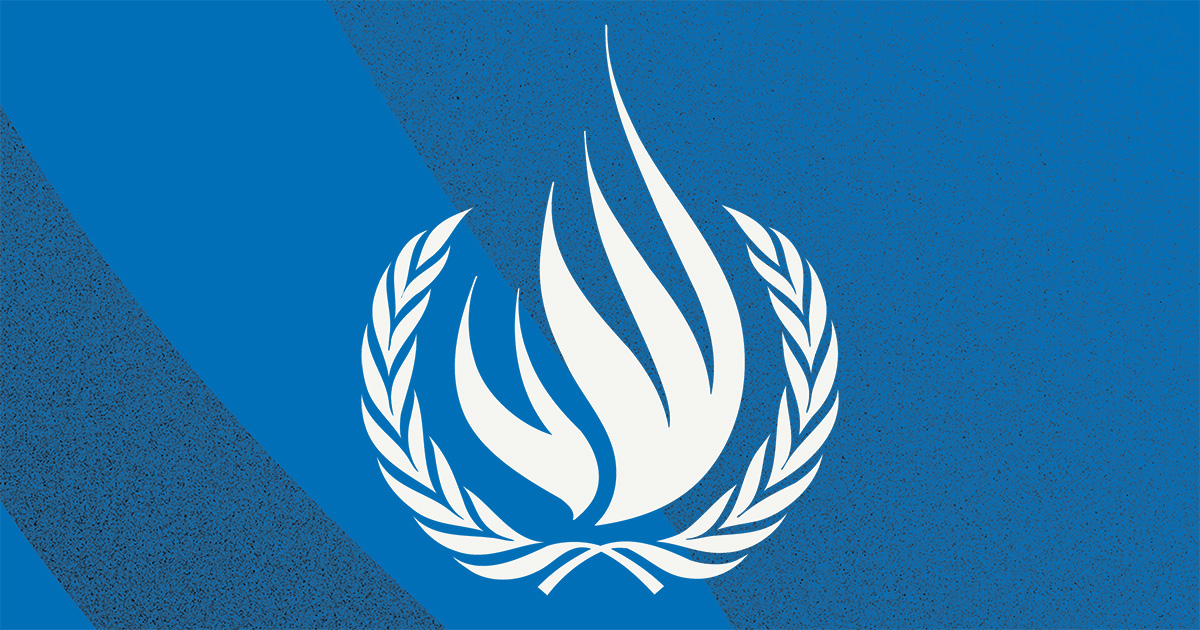
GENEVA (13 September 2023) – A hunger strike by a number of Afghan men and women is a clear symbol of desperation many citizens feel about the deteriorating human rights and humanitarian situation in the country, a UN expert said on Monday.
“The de facto regime is violating a multitude of human rights, and it has eviscerated the rights, life chances and dignity of women and girls,” said Richard Bennett, the UN Special Rapporteur on the situation of human rights in Afghanistan in his oral update to the Human Rights Council.
“The Taliban must reverse their draconian, misogynist policies and allow women to work and run businesses, including delivering essential services through NGOs and the UN,” Bennett said. He urged Afghanistan’s de facto rulers to re-open the doors of schools and universities with a curriculum that meets international standards.
The Taliban’s restrictions and edicts on women and girls are tantamount to gender persecution, Bennett reiterated. This “necessitates an examination of the evolving phenomenon of ‘gender apartheid’,” he said.
In his update to the Council, the Special Rapporteur highlighted the impact of the crackdown on mental health, with alarming reports of a surge in suicides and suicide attempts, especially among women.
He drew the attention of the Council to the absence of institutions critical for the rule of law and domestic accountability mechanisms.
“People are publicly tortured and flogged and former government officials and security and defence personnel are at great risk of human rights violations, including extrajudicial killings, enforced disappearances, arbitrary arrests and detention, torture and ill treatment and threats,” Bennett said.
“There is a great need for accountability and multiple tools need to be brought to bear.”
The expert expressed concern about the “collapse” of civic space in Afghanistan, with numerous reports in August of journalists being arrested.
While some were recently released, he warned that the vulnerability to arbitrary arrests and detention has a chilling effect on the media landscape.
The Special Rapporteur said he had received concerning reports from Tajik, Hazara, Turkmen, Uzbek and other ethnic and religious communities. He expressed concern about “the effect this strong sense of discrimination and exclusion held by large parts of the population may have on the stability of Afghanistan”.
He made reference to recent concerts by the Afghanistan Youth Orchestra in exile. “Cultural rights are at the heart of our humanity. Regrettably they are too often marginalised,” Bennett said.
The expert urged the Council to consider how the current push towards a madrassa type education would affect the future of Afghanistan, stability of the region and global security. Afghanistan is undergoing a major humanitarian crisis exacerbated by a Taliban-imposed ban on women NGO and UN workers and chronic underfunding of humanitarian aid, the Special Rapporteur warned.
“Afghans deserve more. This is not the time for reticence, but to take decisive action to support those in need,” he said.
ENDS
Mr. Richard Bennett is the United Nations Special Rapporteur on the situation of human rights in Afghanistan. He officially assumed duties on 1 May 2022. He has served in Afghanistan on several occasions in different capacities including as the Chief of the Human Rights Service with the United Nations Assistance Mission in Afghanistan (UNAMA).
The Special Rapporteurs are part of what is known as the Special Procedures of the Human Rights Council. Special Procedures, the largest body of independent experts in the UN Human Rights system, is the general name of the Council’s independent fact-finding and monitoring mechanisms that address either specific country situations or thematic issues in all parts of the world. Special Procedures experts work on a voluntary basis; they are not UN staff and do not receive a salary for their work. They are independent from any government or organisation and serve in their individual capacity.
UN human rights country page: Afghanistan
For more information and media requests, please contact hrc-sr-afghanistan@un.org.
For media inquiries related to other UN independent experts, please contact Maya Derouaz (maya.derouaz@un.org) or Dharisha Indraguptha (dharisha.indraguptha@un.org)
Follow news related to the UN’s independent human rights experts on Twitter: @UN_SPExperts.
Concerned about the world we live in?
Then STAND UP for someone’s rights today.
#Standup4humanrights
and visit the web page at http://www.standup4humanrights.org








